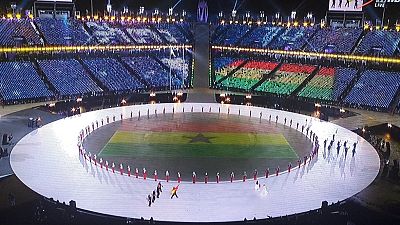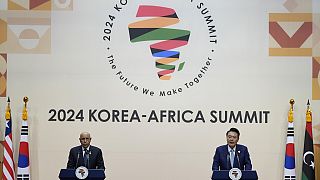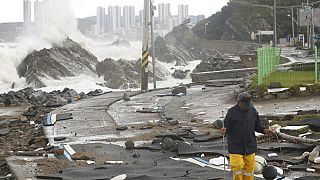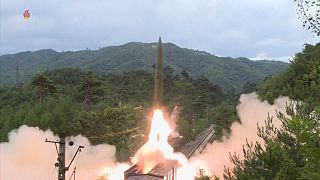Korea
Greece, Ghana, Nigeria, South Africa. Those will be the first countries to emerge at the opening ceremony of the 2018 Winter Olympics in Pyeongchang, South Korea on Friday.
That is because the Korean alphabet, known as Hangeul, starts with a sound similar to a “g” in English, followed by a sound close to an “n”.
Olympic teams always enter after Greece, birthplace of the modern Games, and then in alphabetical order according to their names in the host nation’s language, which has usually been Roman script.
Invented by a Korean king, Sejong the Great, as an alternative to complicated Chinese characters, Hangeul is a 600-year-old writing system used in both North and South Korea.
So in the order of appearance, the Greek athletes were traditionally introduced first followed by #Ghana then Nigeria and South Africa and the rest. Just seeing Madagascar also has one sole athlete, an alpine skier. #WinterOlympics #PyeongChang2018 pic.twitter.com/4Yag12KfUj
— Nii Akrofi (@niismart) February 9, 2018
What might appear as a jumble of circles, lines and squares to the uninitiated, Hangeul is lauded for its accessibility and scientific approach.
That’s in part because it is a phonetic script, and some letters are designed to emulate the shape of the speaker’s mouth when pronounced.
“A wise man could learn it in a morning,” King Sejong is said to have written. “A stupid man could learn it in 10 days.”
Nigerian women’s bobsled team members Seun Adigun, Ngozi Onwumere and Akuoma Omeoga will represent Africa’s populous nation at the 2018 Pyeongchang Winter Olympic Games currently underway.
REUTERS












Go to video
Nelson Mandela International Day 2025: The power to end poverty is in our hands
01:13
South Africa: Eskom targets mainly clean energy sources by 2040
01:00
Pix of the Day: July 16, 2025
00:52
Nigeria's former president Buhari laid to rest in his hometown of Daura
01:46
G20 members hope to reach consensus on global financial reforms at Durban meeting
01:13
South Africa: Cape Town best city in the world